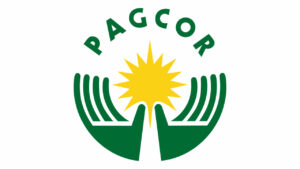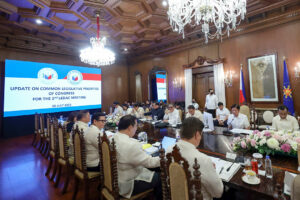Strategic reform pillars in governance

Filipinos have suffered the consequences of the COVID-19 pandemic for more than two years. It has certainly exacerbated the many long-standing ills confronting our people.
With elections just a few days away, this is an opportune time to think about not only who we will vote into office, but the reforms our new leaders should undertake to reverse our losses in the past, enable us to recover and sustainably grow, and bring a decent life to as many Filipinos as possible.
The problems are so daunting that one is moved to ask: Where do we even start?
We at Stratbase ADR Institute thought we would start with the release of special papers — authored by policy experts and esteemed names in their fields — that dissect the current situation, view it from many angles, and then propose solutions and recommendations that we hope our next leaders would heed or at least consider.
These papers, produced painstakingly by scholars untainted by politics and other vested interests, seek only to suggest ways in which we could move forward better and stronger as a nation.
Last week we held a virtual town hall discussion where four of the authors presented their papers’ recommendations. More than that, we had a candid and free-wheeling discussion about where we are, where we should ideally be, and how we believe we should get there.
It was a good two hours with my friends Dr. Francisco Magno, Zy-za Nadine Suzara, Dr. Sherwin Ona, and Dr. Rizal Buendia, who provided their sage insights into politics, governance, fiscal policy, and digitalization.
Alas, we have not gone far beyond mere rhetoric. This will not win the fight against corruption. Governance has several measurable, observable indicators and the rhetoric of politicians does not count as one of these indicators.
I agree with Dr. Magno who said corruption is not just a matter of having corrupt individuals. No, it is much bigger, more systemic, than that. It is an entire mechanism of government that allows, encourages, and even rewards corrupt acts and dishonest mindsets.
True change will only come in the form of stronger institutions and strategies that keep monopolistic power to a minimum, limit discretion, and promote accountability. In this environment, with the certainty of being found out, shamed, and punished, corrupt officials would know they would be taking a great risk — and thus may end up not doing the corrupt acts at all and be forced to contain their corrupt mindset.
Digital technology is a powerful tool that has given us some sense of normalcy even during the height of the lockdowns. But we also became more exposed to fake news, hatred, and vile commentary, even threats to our personal security.
Dr. Ona believes that digital transformation should not be pursued for its own sake but as a tool to achieve inclusion, innovation, resilience, and good governance.
We must think long-term about digitalization. Beyond building digital infrastructure, it’s a mindset that allows us to imagine a well-run government because the people are able to participate in nation-building and exact accountability.
Meanwhile, Ms. Suzara shared her critique of the Duterte administration’s skewed spending tendencies, favoring infrastructure even at a time when the pandemic was taking its greatest toll on our healthcare system and economy — a glaring imbalance ignoring social protection and human capital development.
Who decides these things? Aren’t legislators supposed to represent the interests and the needs of their constituents? And shouldn’t ordinary citizens be given the space to participate in the budget process for the plain fact that it is their money to be spent for their benefit?
Finally, radicalism.
During the campaign we hear this talk about being radical when we express our love for our country. “Radical” measures are exactly what Dr. Buendia believes it would take to change the course of decades of personalistic governance that has corroded political institutions.
Indeed, these times call for extraordinary measures. These drastic measures should come in the way we do politics, carry out our elections, and even converse about the state of our nation.
Governance is not just the business of the government. It is a whole-of-society undertaking, where the people themselves are given the opportunity to articulate what they need, assert the accountability of their leaders, and participate in the crafting of policy.
In the next few days, we will decide not just for ourselves but for the next generation of Filipinos. Who among the candidates is the most predisposed to undertake radical reforms, listen to the people, empower them to own their participation on government, and make them proud to be Filipinos again?
Let us then take our answer to the ballot on Monday.
Victor Andres “Dindo” C. Manhit is the president of the Stratbase ADR Institute.




